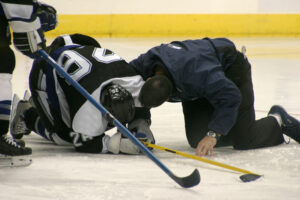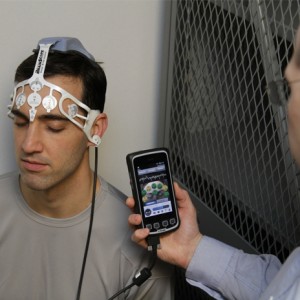A new research study from Longwood University looks at introducing a non-invasive treatment for traumatic brain injury (TBI) victims.
Dr. Ann Cralidis, assistant professor of communication sciences and disorders at Longwood, reports that verbal fluency significantly decreases in soldiers and football players who suffer from TBI. Brain injuries make it difficult for sufferers to organize thoughts and words, and act out daily activities. Verbal fluency tests show how brain damage impairs the ability to use executive functions like planning, multi-tasking, and the ability to pay attention.
Dr. Cradilis says that TBI victims “have a much harder time organizing thoughts and accomplishing tasks that most people find routine, like going to the bank or shopping for groceries…When people go into the kitchen to make a meal, they organize their actions based on where the ingredients are located, estimated cooking times, and how long it will take to prepare the food for cooking.”
By studying how those without a brain injury organize and carry out routine activities, Dr. Cralidis hopes that she will be able to help TBI victims rebuild damaged connections and improve their executive functioning abilities.







